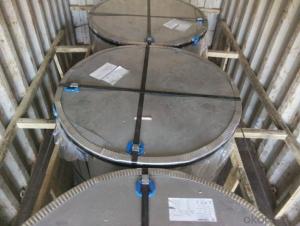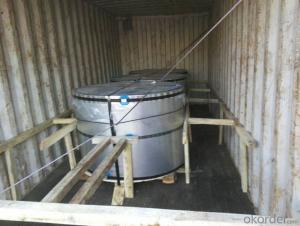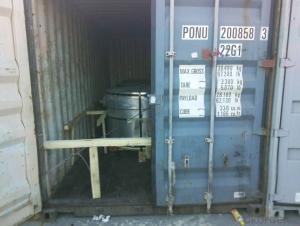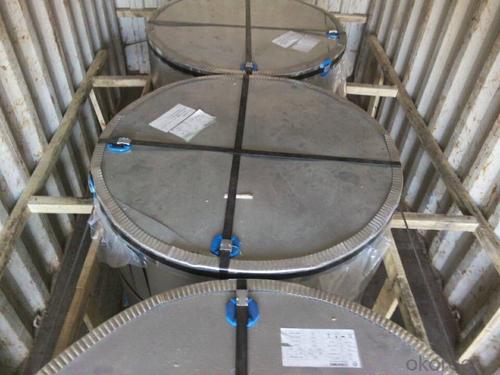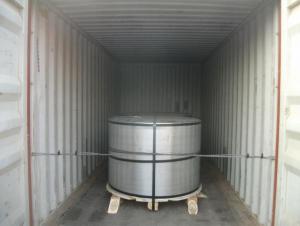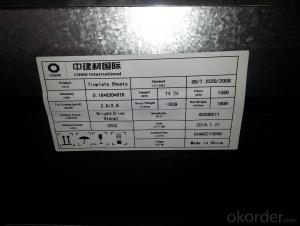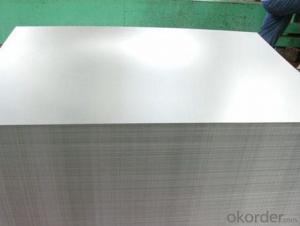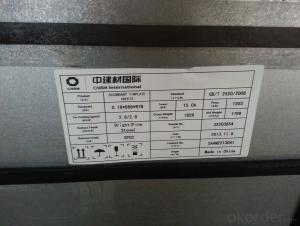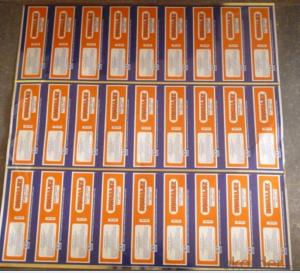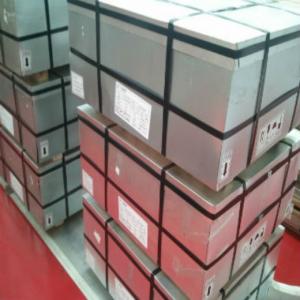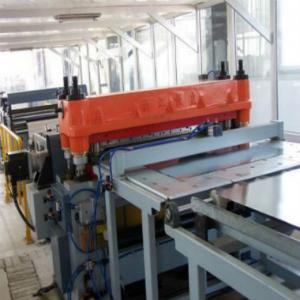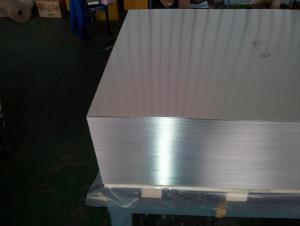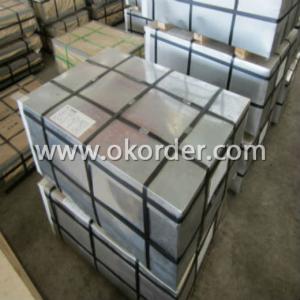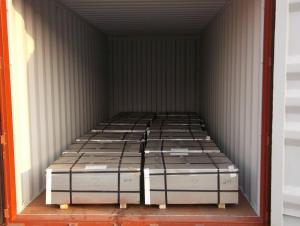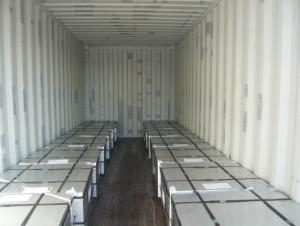Tinplate in SPCC Grade for Making Pencil Box
- Loading Port:
- China main port
- Payment Terms:
- TT OR LC
- Min Order Qty:
- 25 m.t.
- Supply Capability:
- 30000 m.t./month
OKorder Service Pledge
OKorder Financial Service
You Might Also Like
1. Products: Tinplate
Tinplate and TFS are widely used for making all types of containers such as artistic cans, tea cans, painting cans, chemical package cans and metal printing etc. Its applications are not limited to containers; recently, they have also been used for making electrical machinery parts and many other products.
2. Specification:
Our goods enjoyed high quality both at home and abroad. We can supply tin free steel as follows:
Technical standard | JISG3303 and GB/T 2520-2008 |
Steel Type | MR / SPCC |
Thickness | From 0.15mm to 0.50mm (Tolerance +/- 0.01mm) |
Width | Normally 600-1050mm (Tolerance +3/-0 mm) |
Coating | 2.8/2.8g/m2 , 2.8/5.6g/m2 ,1.1/1.1 g/m2 |
Temper & Annealing | T1-T5, DR7-8, TS230-TH435, T49-T65(+/- 4) |
Surface Treatment | Bright & Fine Stone & Stone & Silver & Matt |
Payment terms | Letter of Credit (L/C), Telegraphic transfer (T/T) |
Price terms | CFR & CIF price term |
Delivery time | Within 60 days after received L/C or T/T down payment |
Packing | High quality shipping packing which contains thin plastic film, rust-proof paper, metal cover, metal angles and strap sand pallet. |
Minimum order Quantity(MOQ) | 25 metric tons (1X 20'' container) |
3. Pictures:
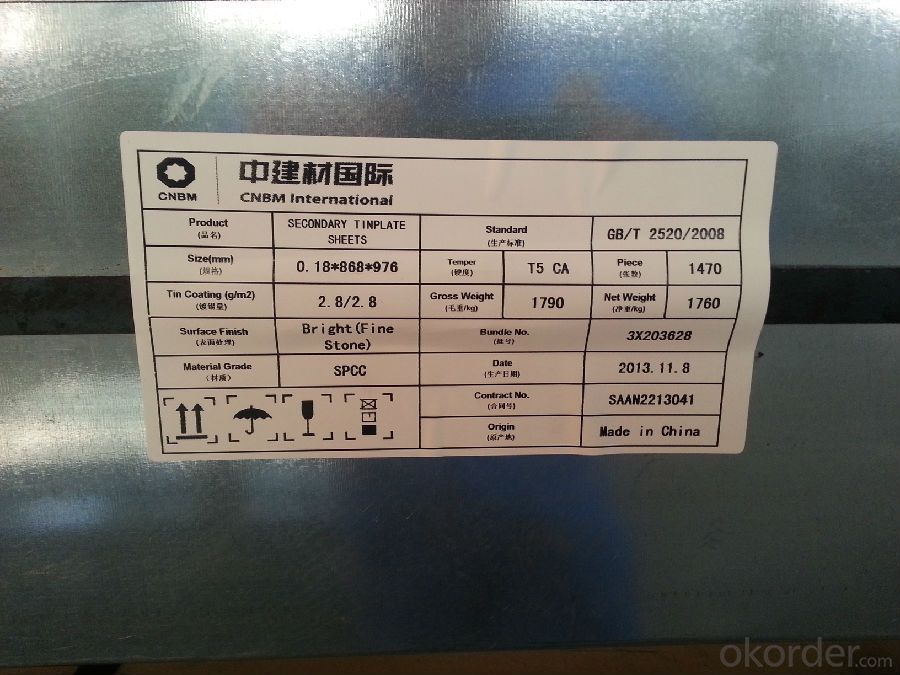
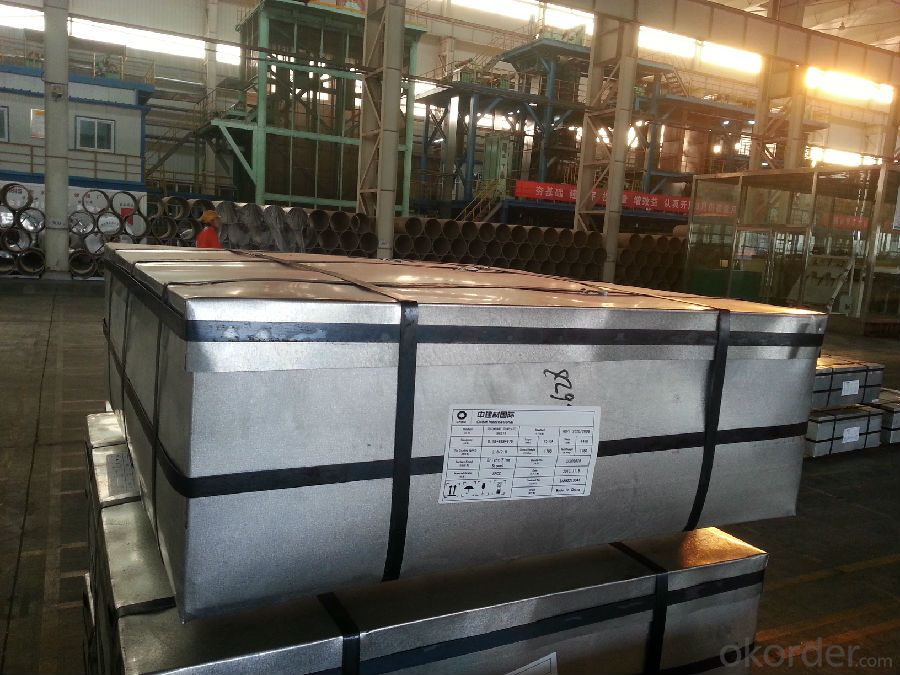
4. Features of the factory price/ tin free steel/tinplate/tfs/tmbp/etp/spte:
Beautiful Appearance
Excellent Paintability & Printability
Excellent Formability & Strength
Excellent Corrosion Resistance
Excellent Solderability & Weldability
5. FAQ:
We are one of the main producers in China for tinplate, tin free steel and also TMBP. At present, our productivity is more than 450000 MT/year.
For more information about our products or company, pls contact us freely.
Welcome your enquiries and orders.
- Q: What are the key properties of tinplate?
- Tinplate is characterized by its corrosion resistance, strong formability, and excellent storage stability, making it an ideal material for packaging applications.
- Q: What are the main trends in the tinplate industry?
- The main trends in the tinplate industry include a growing demand for sustainable packaging solutions, increasing preference for lightweight and easy-to-recycle materials, advancements in technology for improved tinplate production processes, and the emergence of innovative uses of tinplate in various industries such as food and beverages, cosmetics, and electronics.
- Q: What are the typical lead times for tinplate tooling?
- The typical lead times for tinplate tooling can vary depending on various factors such as the complexity of the design, size of the tooling, and the workload of the manufacturer. However, in general, lead times for tinplate tooling can range from a few weeks to a couple of months. It is important to communicate with the manufacturer or supplier to get a more accurate estimate based on your specific requirements.
- Q: Can tinplate be used for packaging household cleaning products?
- Yes, tinplate can be used for packaging household cleaning products. Tinplate is a durable and corrosion-resistant material that provides protection to the products and ensures their shelf life. It is commonly used in the packaging industry for a wide range of products, including household cleaning products.
- Q: How does tinplate handle exposure to gases and odors?
- Tinplate is known for its excellent resistance to gases and odors. It acts as a protective barrier, preventing the transmission of gases and odors into the contents it contains. This makes tinplate an ideal choice for packaging solutions, ensuring the integrity and quality of the products inside.
- Q: Can tinplate be used for household appliances?
- Yes, tinplate can be used for household appliances. It is a commonly used material due to its durability, corrosion resistance, and ability to be easily formed into various shapes. Tinplate provides a protective layer, making it suitable for applications such as cans, containers, kitchen utensils, and other household appliances.
- Q: What are the different testing methods for tinplate packaging?
- Some of the different testing methods for tinplate packaging include visual inspection for defects or damage, measuring the thickness of the tinplate using a micrometer, performing drop tests to assess the durability and impact resistance of the packaging, conducting leakage tests to ensure the integrity of the seals, conducting corrosion resistance tests to evaluate the tinplate's resistance to rust or corrosion, and conducting performance tests to assess the packaging's ability to withstand various environmental conditions and mechanical stresses.
- Q: What are the different methods of disposing of tinplate packaging?
- Some of the different methods of disposing of tinplate packaging include recycling, reusing, and landfill disposal. Recycling involves separating the tinplate from other materials and sending it to recycling facilities to be processed into new products. Reusing tinplate packaging can involve repurposing it for storage or other purposes. If recycling or reusing is not possible, tinplate packaging can be disposed of in landfills, although this should be the last resort as it contributes to waste accumulation.
- Q: What are the differences in the corrosion behavior of two ferrous iron products?
- There are other statements, such as China used this lamp tin plate made of kerosene, shaped like a horse, so called "tin".
- Q: Can tinplate be used for art and sculptures?
- Yes, tinplate can be used for art and sculptures. Its malleability, durability, and ability to hold intricate details make it a popular choice for creating various artistic forms. Additionally, tinplate can be easily manipulated, painted, and polished, allowing artists to explore different techniques and finishes in their creations.
Send your message to us
Tinplate in SPCC Grade for Making Pencil Box
- Loading Port:
- China main port
- Payment Terms:
- TT OR LC
- Min Order Qty:
- 25 m.t.
- Supply Capability:
- 30000 m.t./month
OKorder Service Pledge
OKorder Financial Service
Similar products
Hot products
Hot Searches
Related keywords
